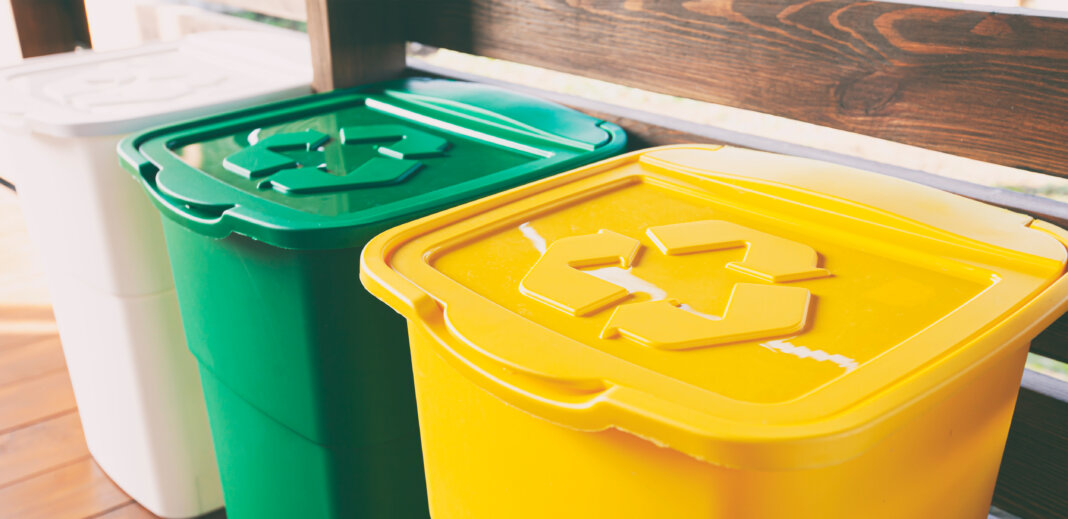Smart Recycling Habits for Seniors: Simple Steps to Live Greener Every Day
Do you want to go green, but aren’t sure where to start? You’re not alone! It’s hard to know what waste reduction efforts will make the most difference. Luckily, for most of us, going green doesn’t require significant lifestyle changes or complicated new routines. Sustainable living can actually simplify daily life while creating a healthier environment for kids, grandchildren, and future generations.
Five Low-Effort Ways to Increase Your Sustainability
The key to creating significant change is to start with small efforts. Let’s explore five simple recycling tips that will help you contribute meaningfully to environmental protection while streamlining your household management and saving money.
1. Create an Accessible Home Recycling Station
You’re more likely to keep up with your recycling habit if you make it easy. Set up a convenient recycling center by placing clearly labeled, lightweight bins in areas where you typically dispose of trash, such as kitchens or bathrooms.
For example, place a bin for paper wherever you sort your mail. You can also put a container for plastic bottles and waste in the kitchen, or a glass collection bin where you typically use glass bottles or containers.
Use color-coded, large-print labels to make quick identification easier, especially in low light. Not only will this process support your environmental goals, but it’s also a good way to reduce household clutter and create a more orderly living space.
2. Medication Package Recycling and Safe Disposal
One of the most significant sources of waste for seniors? Medication bottles! Empty prescription bottles, packaging, and expired medications can add up.
The first step is to check how you should properly dispose of your medication. Some require special handling, while others can be recycled in your town’s regular recycling program.
For containers that can be recycled with your regular trash, be sure to remove or black out any personal information, rinse them with water, and place them in your regular recycling bin.
Instead of throwing away actual medications, look for seasonal take-back events to dispose of them safely. Between events, store unused medicines in a secure container mixed with coffee grounds or cat litter. This will help prevent them from getting into the wrong hands. Also, be sure never to flush medicine down the toilet, as this can contaminate water sources.
3. Manage Paper Waste and Digital Alternatives
Mail, newspapers, and printed materials can quickly accumulate, especially for older adults who receive a lot of junk mail. Here are some easy steps to take to cut back on unwanted paper waste:
> Unsubscribe from catalogs and circulars you don’t read.
> Contact companies directly or use online services that help cancel unwanted mail.
> Sign up for digital copies of bills, statements, and communications. Many seniors find that technology simplifies rather than complicates their lives once they establish comfortable routines.
The ClearCaptions Phone offers a perfect example of how technology can support both communication needs and environmental goals. This innovative phone service provides near real-time captions of conversations.
These captions make conversations clearer and eliminate the need for paper notes or written reminders during calls. You can easily reference important information without writing things down, reducing paper usage while enhancing your connection with loved ones.
Gradually transitioning to digital communications will reduce the amount of paper waste in your home, while also creating a more organized and less stressful space.
4. Kitchen Waste Solutions
The kitchen is one of the biggest waste producers in any household. So, a few simple adjustments can dramatically reduce environmental impact.
> Plan out your meals ahead of time to reduce waste. This will help you cook the proper portions or come up with thoughtful ideas for reusing leftovers.
> Purchase a countertop compost container with a charcoal filter to eliminate odors. This small container can hold coffee grounds, vegetable scraps, and fruit peels until you can transfer them to an outdoor compost or community collection.
If outdoor composting feels overwhelming, consider exploring a food waste collection service instead. There are also many small-scale indoor composting systems designed for apartments that require minimal maintenance and are easier to maintain.
5. Donation and Repurposing
If you’ve accumulated a lot of possessions, consider donating these items so they can be reused instead of throwing them away.
Many local organizations accept specific donations, such as medical equipment, craft supplies, or household goods. They will even arrange pickup services for seniors with transportation limitations. Before donating, confirm that items are clean and functional. You wouldn’t want to donate a broken or unusable product!
For items that don’t qualify for donation, explore creative repurposing. Old T-shirts make great cleaning rags, glass jars can store craft supplies, and a beginner woodworker might welcome your old, worn furniture to practice their new craft.
Donating and repurposing old items honors their value while extending their useful life. It also helps build your community and gives back to those in need.
Living Greener, One Step at a Time
If you still need some convincing, pick one or two habits from this list that feel the most manageable. Maybe that’s placing a recycling bin in your kitchen, attending a medication take-back event, or simply determining which of your usual products can be recycled or not.
As these habits become routine, add another until you’ve gone completely green!
Take a moment today to consider which habit works best for you. You’ll be green before you know it!
